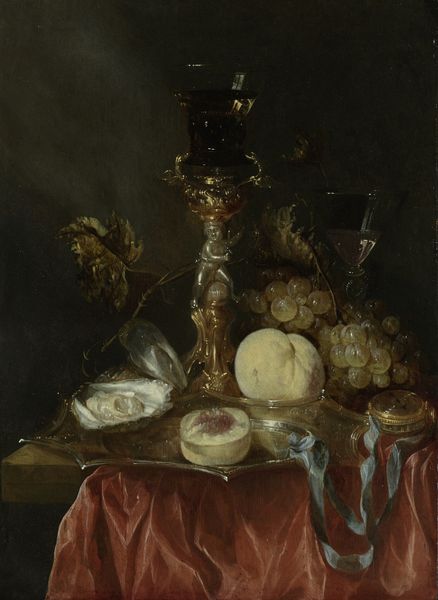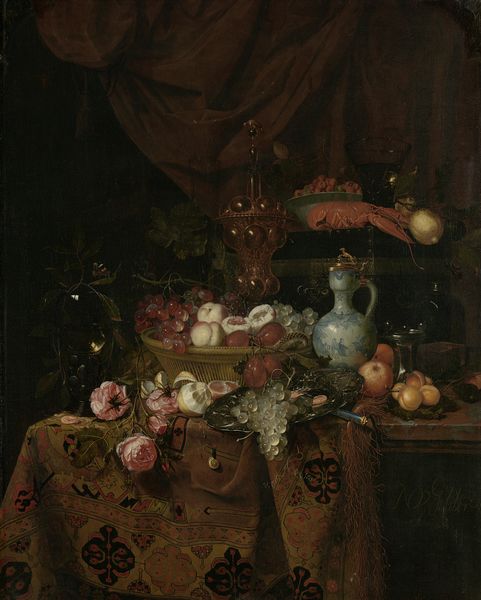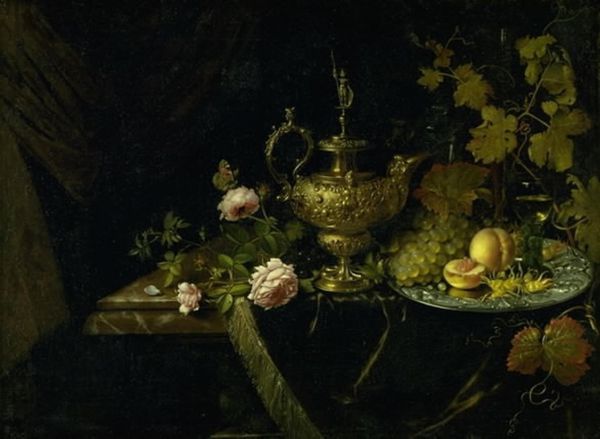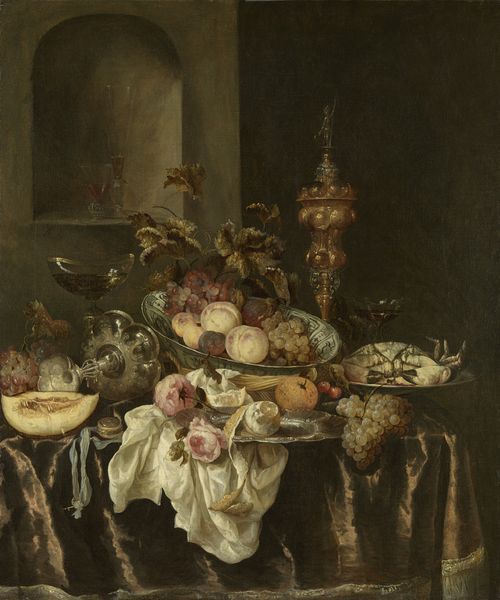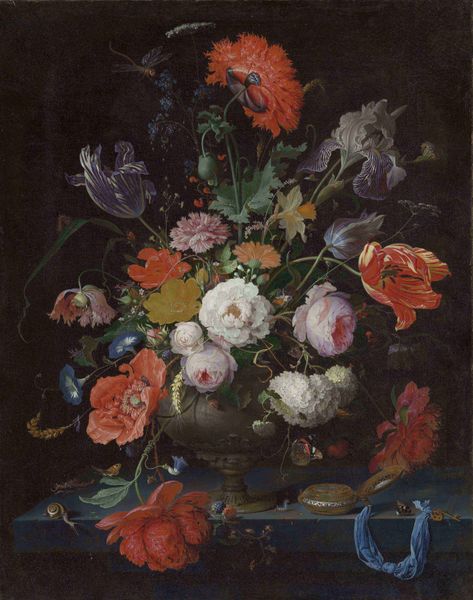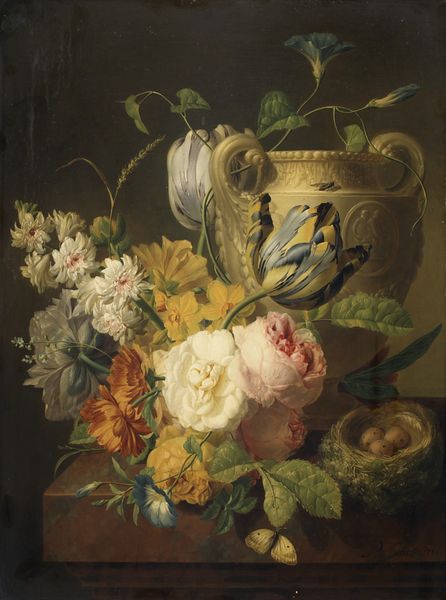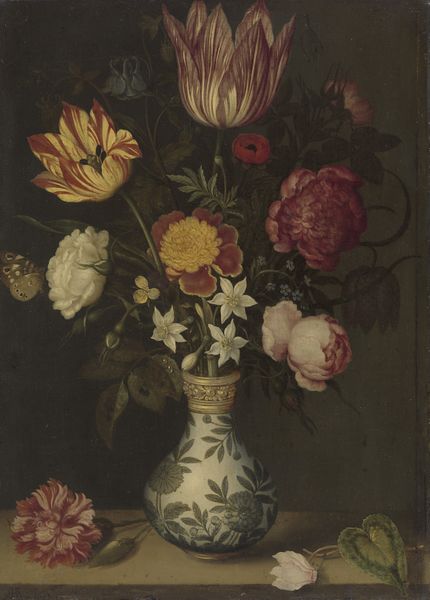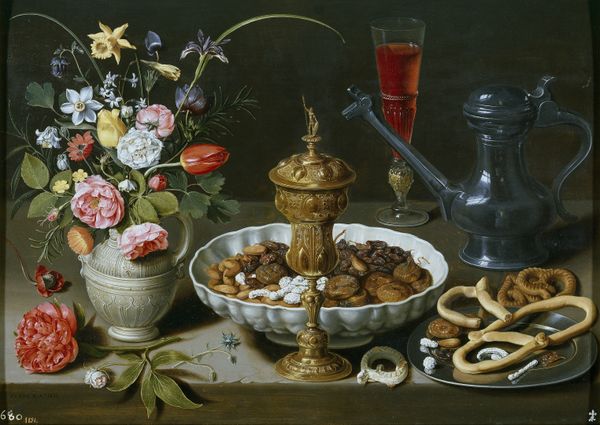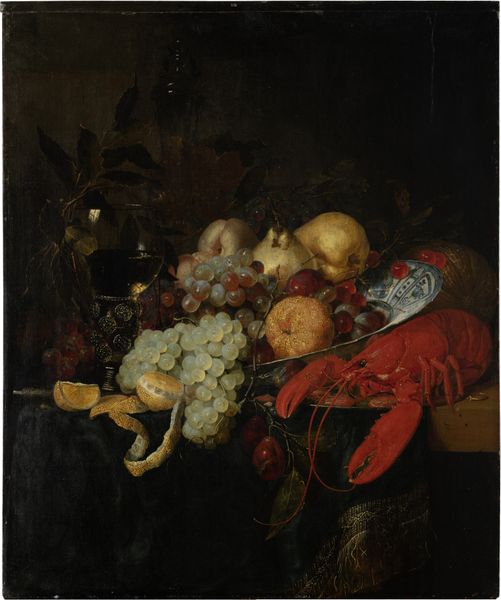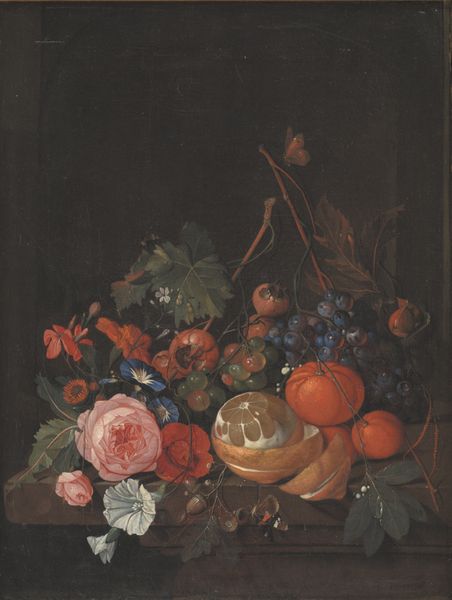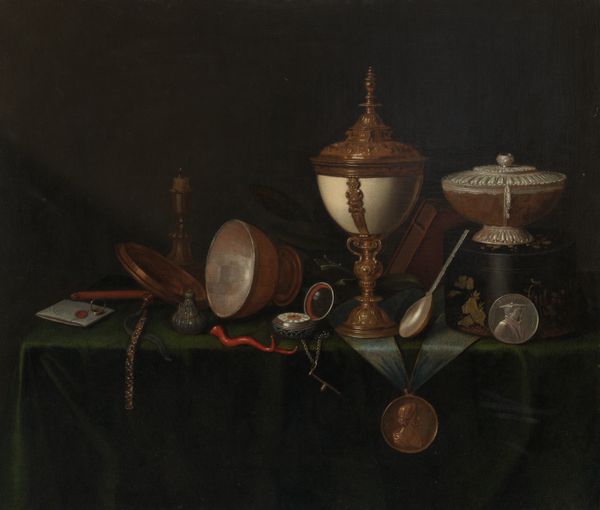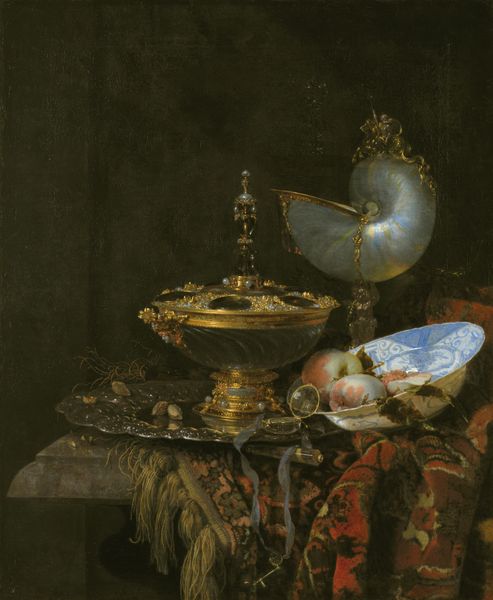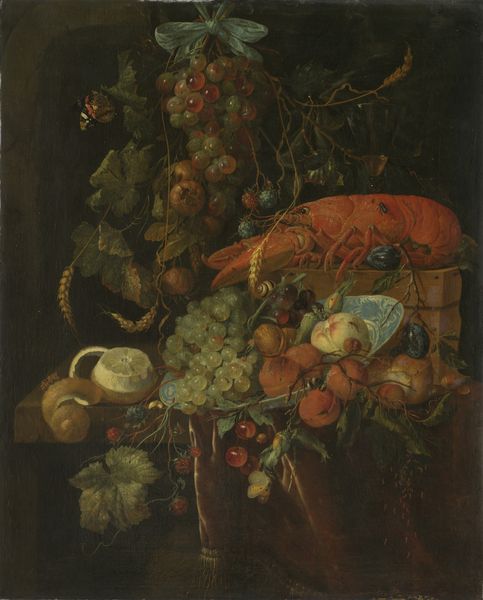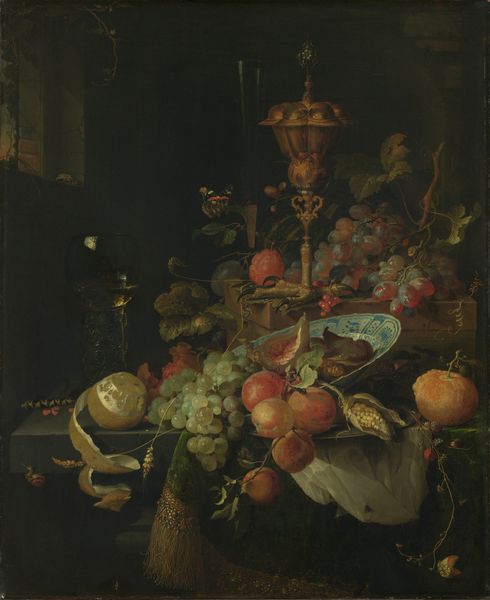
Still Life with Flowers and Gold Cups of Honor 1612
0:00
0:00
tempera, gold
#
baroque
#
tempera
#
dutch-golden-age
#
gold
#
oil painting
Copyright: Public domain
Editor: Clara Peeters's "Still Life with Flowers and Gold Cups of Honor," painted in 1612, strikes me as a meticulously arranged display of wealth and beauty. The gold cups glint in the light, contrasting with the soft petals of the flowers. What do you see in this piece? Curator: This work speaks volumes about the rising merchant class in the Dutch Golden Age. These aren't just pretty objects; they are statements of social and economic status. Notice how Peeters includes reflective surfaces. It's a clever move, drawing the viewer's eye and implicitly celebrating the act of seeing and possessing. Editor: So, it's less about the beauty of the flowers themselves and more about what owning them—or the gold cups—represents? Curator: Exactly! Think about the context. Amsterdam was becoming a major trading center. There was an influx of new goods and an eager market for luxury items. Paintings like this helped solidify that cultural moment. The shells, coins, cups...these all point to global trade networks. Did you know Peeters herself was one of very few women to gain recognition at this time? Editor: It's amazing to consider her navigating that male-dominated art world and to represent a narrative around ownership! What’s your take on where her place might be in art history? Curator: I think Peeters successfully put herself and her work within the established format of still-life painting. It's all about navigating societal expectations, creating something desirable, while leaving subtle traces of personal intent and artistic prowess within the context. That's where the political resonance exists for me. Editor: I never considered how much these still lifes could tell us about power and gender dynamics. That's something I'll definitely look for going forward.
Comments
No comments
Be the first to comment and join the conversation on the ultimate creative platform.
